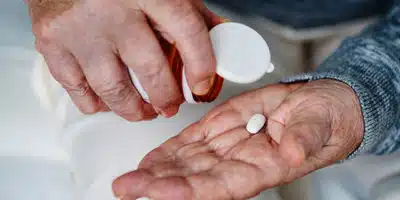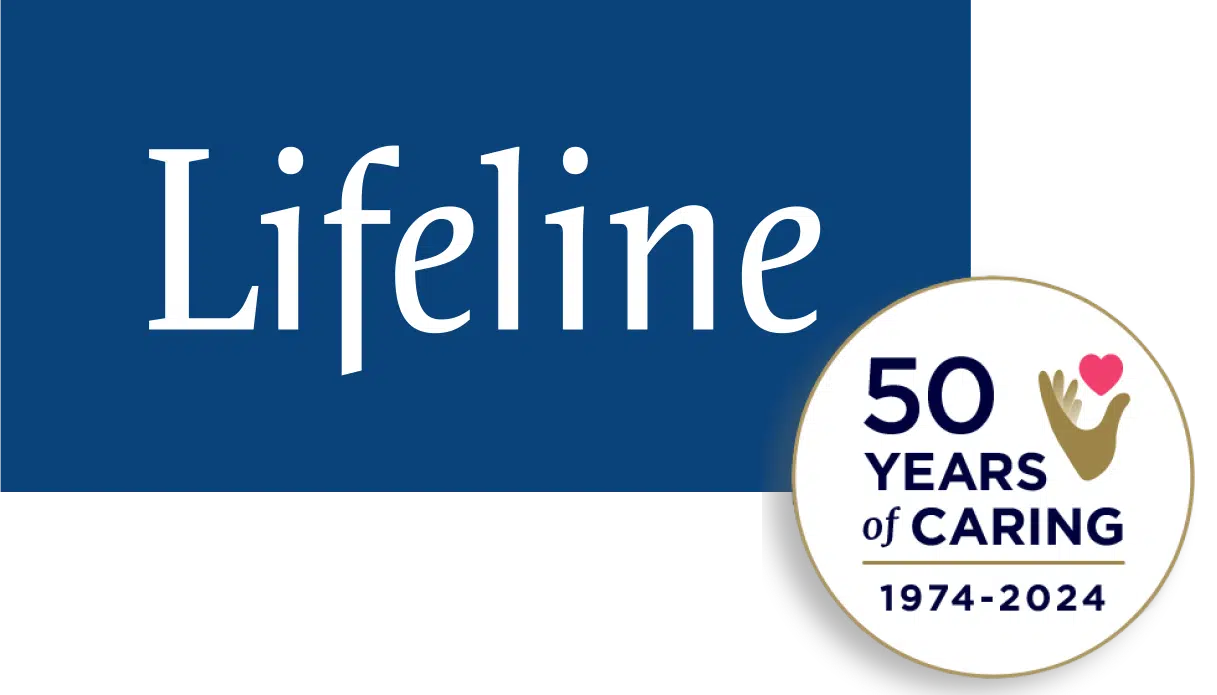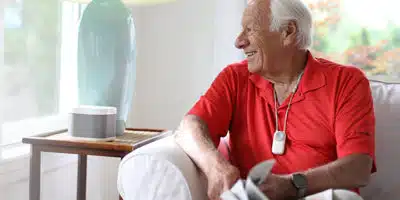Caregiver Daily Checklist
A daily duty checklist for caregivers of seniors
A Brief Guide to Create Your Own Daily Caregiver Duty Checklist
Caring for a loved one with a health condition can be overwhelming as well as rewarding. Taking on some or all of the responsibility for their health and daily activities requires time, attention to detail, patience and love. This can be challenging for a primary caregiver who is also juggling the responsibilities of their own life.
The purpose of this Daily Caregiver Duty Checklist is to make it less stressful to stay on top of the many tasks your loved one might need help with. Also known as a Home Healthcare Plan, it provides a list of typical caregiver duties to help remind you of your loved one’s needs and their healthcare providers’ care instructions. You might also find the checklist useful when holding family meetings and developing an emergency plan.
Not all of the duties listed here will apply to your situation, but you can use this checklist to create your own customized record of care activities. By following this list, you’ll be able to provide care that allows your parent or friend to stay healthy and get the most out of life while also managing the stress and responsibilities of your own life.
Creating A Caregiver Duty Checklist: What You Should Include
1. Medical Care & Medication Management
- Keep watch for signs of potential health problems (e.g. falls, fatigue, mood changes, memory issues)
- Schedule medical appointments and physical exams and accompany to appointments
- Pick up prescriptions and remind your loved one to take medications. Also check out an automatic medication dispenser
- Check blood sugar and blood pressure
- Help manage heat sensitivity (preparing cooling scarves, washcloths, cold packs etc.)
2. Personal care
- Tub or shower bath/bed bath/sponge bath
- Wash hair
- Comb hair
- Brush teeth
- Help with getting dressed
- Shave
- Nail care
- Assist with going to the bathroom
- Help with incontinence (prepare underwear, pads/diapers, absorbent sheets, extra clothes, towels etc.)
3. Household chores
- Laundry
- Clean kitchen
- Take out the trash
- Adjust room temperature
- Clean bathroom
- Clean bedroom
- Vacuum/dust living area
- Make bed/change sheets
- Pick up mail
- Pay the bills
4. Mealtime
- Prepare meals
- Shop for groceries
- Help with feeding
- Encourage fluids/restrict fluids
- Shop for and remind to take vitamins
- Organize pantry and fridge, ensuring accessibility
5. Exercising & creative activities
- Encourage and assist with regular exercise
- Investigate appropriate exercise programs
- Accompany on walks
- Engage in playing board or card games
- Encourage artistic expression (e.g. drawing, painting, dance)
- Reading together
6. Social & outside activities
- Encourage and assist in meeting with friends
- Assist with joining a club or seniors program
- Set up family visits
- Accompany to activities such as Bingo
- Driving trips to the countryside, nearby towns, etc
Why Caregivers Should Consider A Medical Alert Device
Many caregivers in Canada are looking at medical alert services as an easy way to get help for their parent or aged loved one if they fall or have a medical emergency. For seniors who live alone, an accident or emergency can happen at any time. When it does, they need to be able to get help quickly.
Medical alert services such as Lifeline are designed to do just that. Wearing a help button on a pendant or wristband gives your loved one access to fast, expert help at the push of a button, 24 hours a day. Some providers even offer a mobile service for active seniors who spend a lot of time outside their home. Fall detection is also available which calls for help automatically when it detects a fall, even if the user can’t push their help button.
Lifeline was the first medical alert service and remains the leader in helping seniors to live safely and independently. In addition to its senior-friendly, reliable help buttons, Lifeline is well-known for its caring, highly-trained Response Centre staff who are ready around the clock to get your loved one the help they need. They even follow up to make sure help has arrived.
Older adults and their caregivers feel a great relief knowing that help is always just a push of a button away. Seniors feel safer and more relaxed knowing they can continue to enjoy their independent lifestyle and remain in their own home.
If you are caring for a loved one, call 1-800-LIFELINE (1-800-543-3546) to find out more about how a medical alert service can make your caregiving role easier and your loved one safer.
Takeaways
Caregivers in Canada take on a very important role. Your efforts and dedication deserve all the help and support they can get. This Daily Caregiving Checklist will help guide your efforts and go a long way to making your role a little bit easier.
We’d like to leave you with two final pieces of advice: don’t forget to look after your own needs while you tend to those of your loved one, and take advantage of all the tools available to you, including a medical alert service
Discover More

Complete Guide To Caring For An Elderly Parent
Learn how to care for an elderly parent and what are some senior independent living options.

Medication Management For Older Adults
Expert advice with printable guide for managing medications more easily and effectively.

